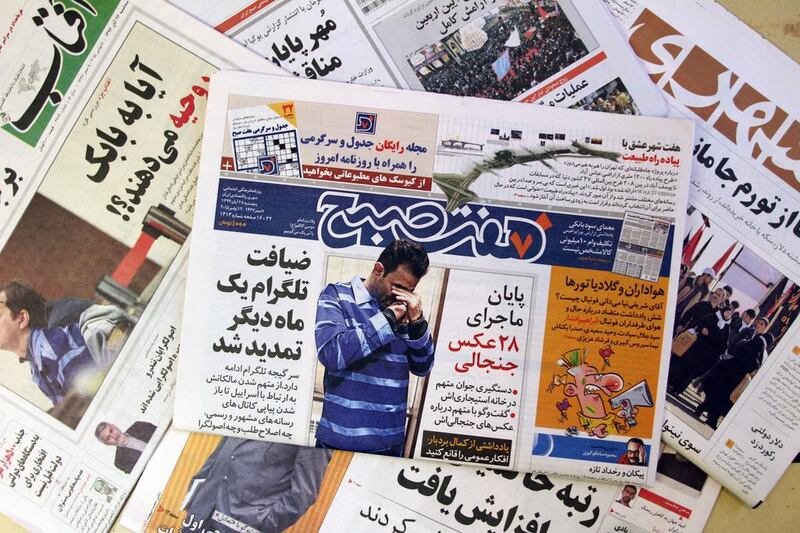Tehran // The tattooed young Iranian initially sparked wonder and some envy when pictures of him with scantily-clad, heavily made-up women, often more than one at a time, went viral.
In a morally conservative country, the obvious breach of a female dress code was one thing. The compromising poses the 14 women were captured in was another.
When the people who patrol Iran’s heavily filtered internet found out, the man known only as Vahid landed in jail.
Images of the women – pouting at the camera and mostly wearing miniskirts and crop tops – spread via smartphones, triggering both ridicule and outrage in the Islamic republic.
The scandal has also provoked a wider debate about smartphone use and the technology used to share content.
The pictures – and rumours about the main protagonist – spread rapidly on Telegram, the free-to-download instant messaging app.
Vahid, a 30-year-old real estate agent, was quickly and wrongly said to own a Maserati and expensive villa in northern Tehran.
As if the infamy was not bad enough, matters worsened when he took to Telegram again to say his phone had been stolen, claiming the women were his sisters and arguing that his privacy was invaded.
“Posting that video was the biggest mistake of my life,” he was later quoted as saying in an apologetic media appearance after being arrested by Iran’s cyber police. The force has wide powers to screen the internet for content deemed un-Islamic.
In the past eight months, 609 men and 114 women have been arrested for cyber crimes because of alleged “economic, moral and social” transgressions, official figures show.
No report of Vahid’s phone being stolen was ever filed, according to police, and his plight has darkened since he was detained and publicly shamed with pictures of him in handcuffs and head in hands making the front page of several newspapers.
The case has caused widespread controversy among Telegram’s opponents, who say the app and others such as WhatsApp and Viber, all used by millions, spread “immoral content” from the West into the minds of Iranians.
Telegram is the most popular messaging service in Iran. Children and teenagers use it to chat while youths organise their social and love lives on it. Even grandmothers share recipes on the app.
But the problems in controlling shared content could lead to access being restricted.
“If Telegram doesn’t take proper measures to comply with our laws within a short time, this body will move to filter it,” Abdul Samad Khorram Abadi, secretary of Iran’s committee for specifying cyber crimes, said last month.
Facebook and Twitter remain blocked in Iran but are accessed by millions using easily available software.
Vahid’s case has shown how private lives can quickly become public with unintended consequences.
As well as facing possible criminal charges, several of the women he was pictured with have launched legal action against him, saying they were duped.
* Agence France-Presse





